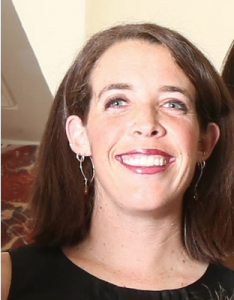What does a modern mathematics classroom look like?
Hannah Starbuck, Mathematics Teacher, Leysin American School.
The Mathematics department goal this year was communication. This was perfect because it tied into a large part of my vision of a modern classroom. The areas I mainly focused on this year were Problems of the Week, Socratic Seminars, and reading articles.
A Problem of the Week (POW), is a large, fairly open-ended maths problem, with an elegant solution or solutions. These questions encourage multiple pathways of thinking and provide students ample opportunity to look for and identify patterns and trends, a useful habit for mathematicians. I’ve given POWs the last three years I’ve been teaching. Students tend to enjoy them and enjoy collaborating with one another. The biggest pushback I get is my expectation that students produce a formal write-up of the problem.
Students are asked to explain in detail the problem and their process of solving the problem, convincing readers of their methods and solution(s) and reflecting on their learning and the task. The question I get: “Why do we have to write in maths class?”.
From the student’s perspective, the purpose of maths class is to “solve problems and get right answers.” But now I tell my students that we write in maths class because it is good for our communication skills, that mathematical writing is just as important as writing an essay on a novel or a lab report AND that it helps to articulate mathematical thinking that might be difficult to express orally.
Students will sometimes go out of their way to complain about writing, but their reflections and mathematical writing always amaze me. For starters, their reflections are insightful and honest. They provide evidence and defend their claims as to why they deserve a certain mark, or what should be changed about the problem. Their thoughts are generally mature, well thought-out, and genuine. Students go into detail as they describe how hard they worked on this problem, and discuss the different maths concepts they applied. It’s important students embrace the idea of convincing a skeptic. Students are very thoughtful in defending their processes and answers and have detailed work and proof to support their thoughts. Even if the solution isn’t correct, I don’t penalize students for trying to defend their work.
Additionally rewarding for me is to watch students interact with one another as they solve these questions. My role is to provide clarity or define words that might be confusing. The problem solving is left to the students. Naturally they want to work together and bounce ideas off each other. The resulting mathematical discussions are truly rich and exciting to listen to. My role is to be the skeptic, asking a lot of how and why questions, encouraging students to be more convincing, and to make strong arguments.
The resulting discussions are impressive. That is the exciting part of POWs. You have opportunities to listen to students from all over the world discuss and debate maths to solve these problems, as well as watch their confidence grow when they are successful.
The second focus area for me was Socratic Seminars centered on math education. I chose to do this because I had 12th graders who were experienced with debate, had good English levels, and I had small enough classes to make sure everyone’s voice was heard. Some of the ideas we discussed were student visions of a modern maths classroom, the necessity of homework, how students are assessed, theoretical and application maths, and mental maths, and many more. Students were expected to prepare questions and opinions to contribute to the discussion, demonstrate respectful and polite body language during the discussion, and reflect on the seminar after it concluded. The majority of the time, students were prepared and contributed interesting questions and thoughts. Students also demonstrated a genuine interest in what others had to say. They maintained eye contact, sat up straight, and showed appropriate signs when they were ready to contribute to the discussion.
What these seminars taught me is that our students are a lot more able than we sometimes give them credit for. The 12th graders I taught had been in school for 13-14 years; they’ve seen just about everything. “As an IB student, I find homework to be very burdensome”, “I strongly dislike routine”, “It is an effective way for students to make projects based on the topic passed, or to make a quiz right after you finished the topic”. These are direct quotes from my students discussing the seminar themes. Their language is honest and shows they’ve played the game of school for a long time and KNOW how to play the game. I try to incorporate a lot of their ideas. To me, this is an obvious motion to listen to students more than we do. Teachers definitely possess the training AND the experience of being both a student and a teacher, but let’s not forget we also had ideas on how to make school more fun for us. When given the opportunity for students to use their voices, they clearly can make educated and insightful observations.
The third item I focused on was having students read various articles on global maths education. This seemed appropriate because my students were from all around the world and could provide insight and perspective on each topic we read about. Some of the topics we read about were: counting on fingers, math anxiety, mathematical geniuses, and teaching math as a language. Similar to Socratic Seminars, I asked students to write their initial opinions based on the headline of the article and give an explanation on why they felt this way. Then they read the article and shared their opinions, touching on whether their previous ideas had changed, why or why not, and tried to connect the article back to their home country. Again, their responses are incredible to read. Students provide so much detail and perspective, and what’s even more interesting is that a lot of them had never thought about some of the topics we read about.
For example, we discussed the benefits of counting on one’s fingers and encouraging teachers to allow it. “Many people, especially children, are using the fingers for counting. The brain structure is working by counting fingers, it is such an instinct. I think that using fingers before school is fine, but step by step you need to get rid of it. I think that taking notes is more efficient”, “Most people, myself included, are visual and tactile learners to some extent. So using our fingers to count quickly is a good way to do mental calculations”. These quotes from my students confirm many things for me. The primary one is each student comes from a unique background and maths has its own identity and culture in their homeland.
Maths takes many shapes and forms depending on location and culture. And once again, students have shown me their strong abilities to read, interpret, and form a thoughtful and relevant opinion on a concept that might be unfamiliar. This is the power of giving students the opportunity to use their voices: they provide insight, perspective, and ideas to those around them, including their teachers.
Where do I go from here? There are a few areas I’d like to experiment with. The first is using a portfolio as a way to assess students. Ideally the portfolio would contain projects, reflections, assignments, and other pieces of “evidence” that students would use to show their development throughout the year. The second is to buy a class set of books and incorporate literature into maths class. I have a few titles I’d be interested in using. The next step is to discuss best practices with an English Literature teacher. I’ll also change some of the topics for the Socratic Seminars to be more mathematical. Zero is a popular choice, prime numbers, calculus, etc, all have potential for an interesting discussion. And finally, I’d like to incorporate more projects into maths class. Maths is not a one size fits all subject, it has so much room for creativity, problem-solving, and growth. Projects give students more choice and authenticity in their learning and what students create is truly interesting! The best thing we can do for our students is to empower them by giving them opportunities to speak, write, listen, read, and create pieces of work that demonstrate learning and also have meaning and personality.
BIBLIOGRAPHY
Fendel, D., Resek, D., Aler, L., Fraser, W. (1997). Integrated Mathematics Program (IMP) Curriculum. Integrated Mathematics Program (IMP) Curriculum, Key Curriculum Press: Emeryville, CA.
ABOUT THE AUTHOR
Hannah Starbuck is a maths teacher, volleyball coach and resident scholar at Leysin American School. She is originally from Colorado and is finishing her sixth year of teaching.






Leave a Reply
Want to join the discussion?Feel free to contribute!